In the past few weeks, student protests across the country in support of Palestine have turned American college campuses into battlefields. These protests started because of an attack by Israel on Gaza in October 2023. They have caused people to talk about free speech, antisemitism, and what it means for academics to be responsible. There are a lot of things that have made people protest across the country.
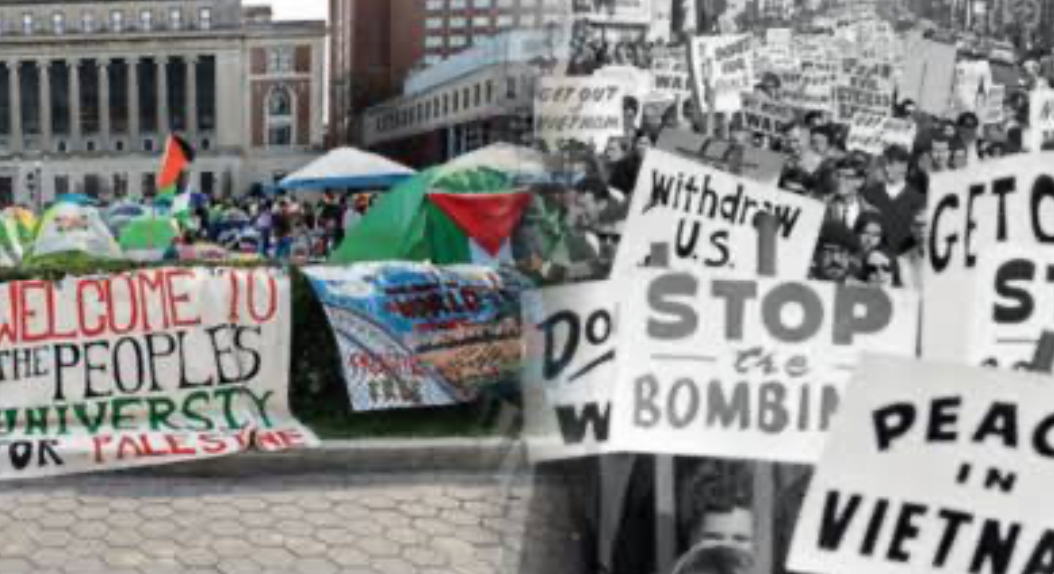
Why the Outrage? A Spark Ignites a Movement
Israel's actions, in response to a deadly Hamas attack on southern Israel, sparked protests right away. But the problems go deeper, to a fight that has been going on for a long time and to tensions that have been building up on campus. They want their universities to take real action, and many of them are part of groups like Columbia University Apartheid Divestment (CUAD). The following three requests stand out:
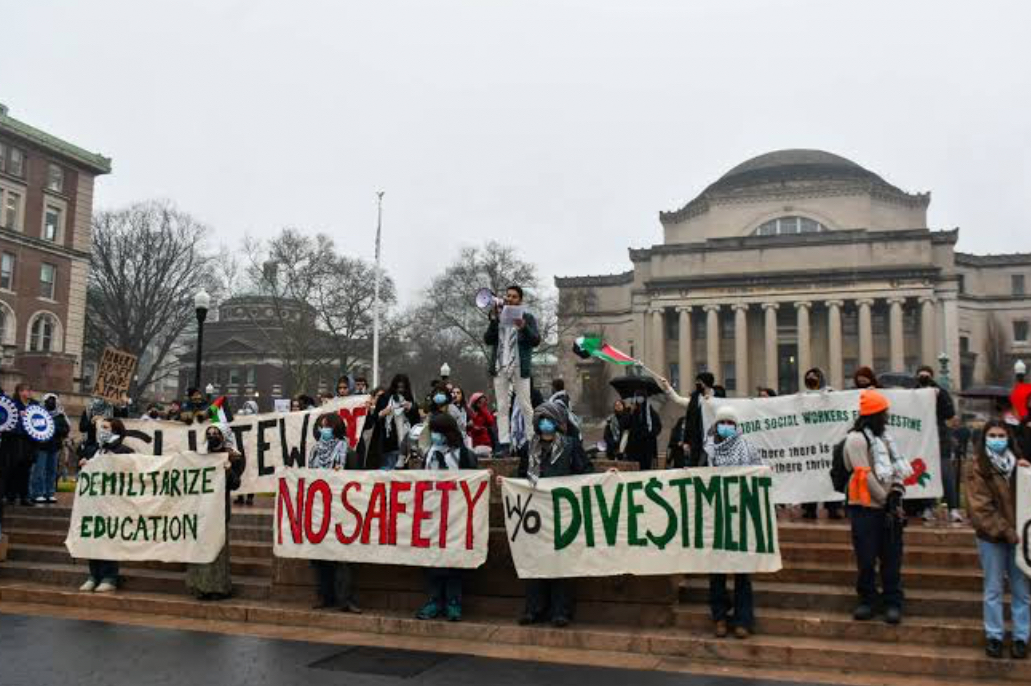
Divestment: These days, students want colleges and universities to cut ties with companies that they think support the Israeli government. Boycott, Divestment, and Sanctions (BDS) is a movement that aims to exert pressure on Israel. This is in line with the movement.
Transparency: Some people want universities to be more open about the money they spend, especially in companies that work in the area where the Israeli-Palestinian conflict is happening.
Freedom for All: Assistance for children and educators who may face consequences for their protests.
People are protesting in various locations across the country
Many colleges have seen dramatic events during the protests, which are more than just rallies.
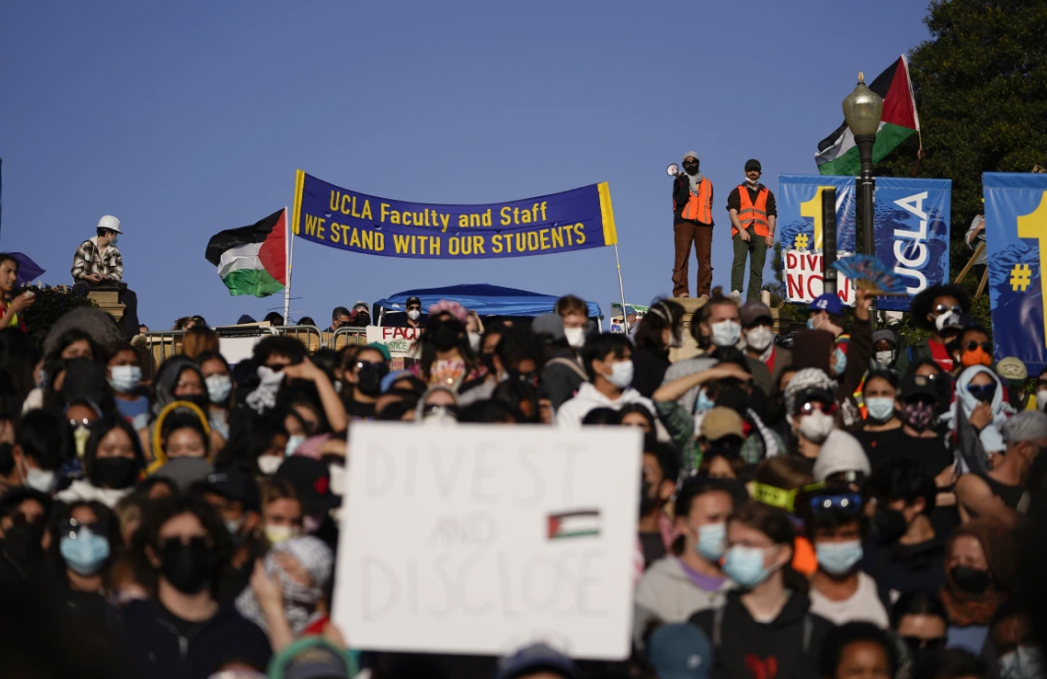
University of Columbia: Advocates for Palestinians took over an academic building at Columbia, which was the centre of the movement, and set up a symbolic 'encampment'. As a result, the university sent cops to break up the camp and arrest dozens of people. Students' limited access and suspension have infuriated them even more.
Austin, Texas, University: Many people thought the police used too much force when they arrested individuals and used pepper spray to break up a pro-Palestinian protest.
Los Angeles (UCLA) University: Pro-Palestinian and pro-Israeli groups broke out in fights, prompting the tightening of security, the cancellation of the graduation event, and warnings of expulsion for students who blocked classrooms.
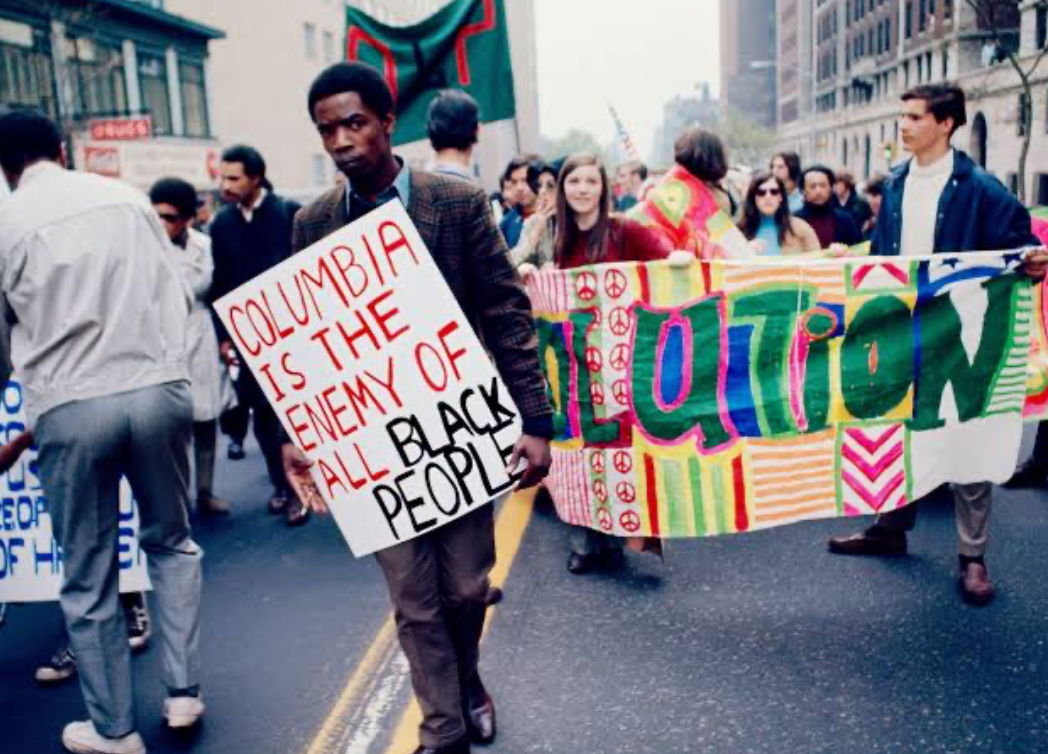
Several other university:
At colleges like Virginia Tech, UNC Chapel Hill, and the University of Florida, there have been similar protests and arrests.
The protests at these universities are similar:
- Virginia Tech arrested 82 people.
- University of North Carolina In Chapel Hill, police arrested thirty people. University of North Carolina
- The University of Florida saw nine arrests.
- Michigan State University (possible graduation protests)
- Harvard University (13 charges) Virginia Commonwealth University
- Portland State University: When cops took down tents and arrested protesters.
- The University of Minnesota still has a student camp, but the buildings have closed.
- The protests forced George Washington University police to remove barricades and move the law school exams.
- Law enforcement arrested protesters at Emory University and later dropped the charges against them.
Antisemitism and free speech are two hot topics of debate right now.
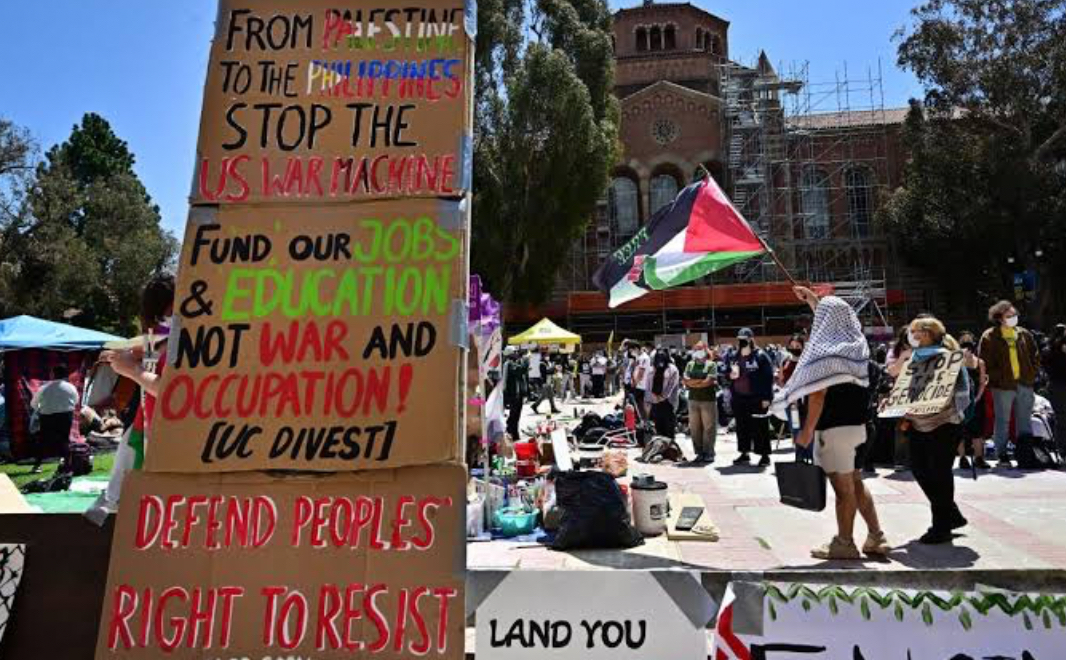
The protests have sparked a heated debate about free speech and its limits.
Free Speech vs. Hate Speech: How do you tell the difference between criticism of Israel that is fair and attacks on Jews? This disparity has turned into a battleground, with charges flying on both sides.
Are you worried about anti-Semitism?: Some have criticised the protests for using racist language and calling for violence against Jews. To keep free speech from turning into hate speech, they want colleges to do what they can.
There have been allegations of silent dissent: They argue that pro-Palestinian activists unfairly face anti-Semitic labels due to their criticism of Israeli policies. These individuals advocate for human rights and the right to free speech.
Universities caught in the middle face the challenging task of upholding free speech while ensuring student safety from violence and hate speech. The University of Southern California (USC) had to halt a graduation speech due to perceived pro-Palestinian views, exemplifying unsafe situations.
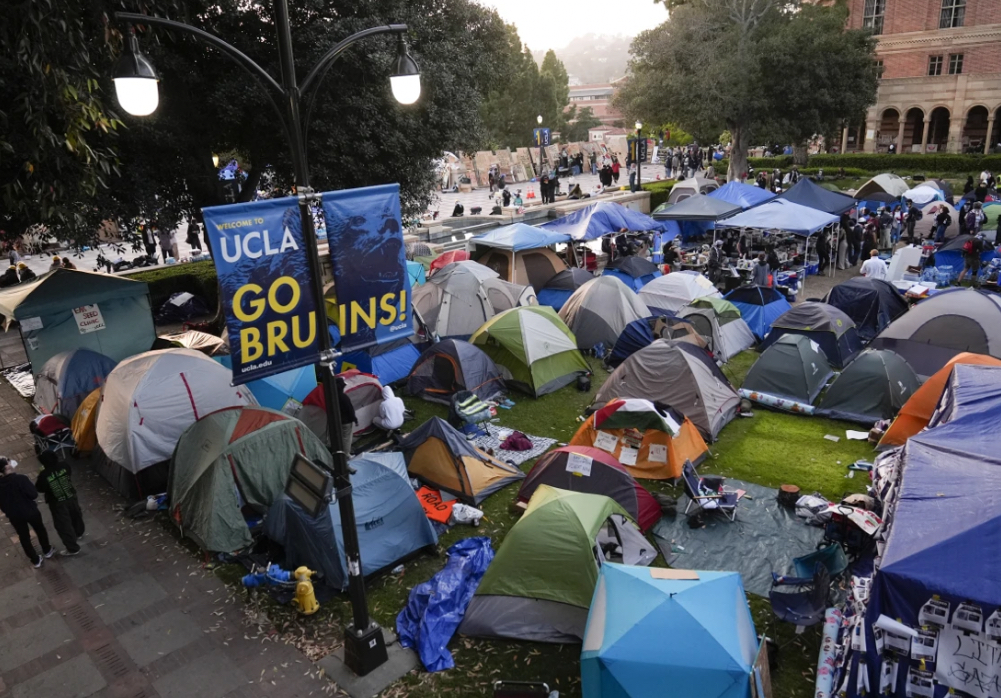
Thinking About the Future: A Path Not Clear
It's still unclear what will happen with the protests.
Assault or settlement? These protests might get worse, or there might be a way to talk things out and find a solution.
Talking is important because: The only way to find common ground is for everyone to talk to each other openly. To make these talks possible, universities can be very helpful.
Looking at things from a variety of perspectives: We must balance concerns about racism with the rights of the Palestinian people.
What's happening outside of campus?
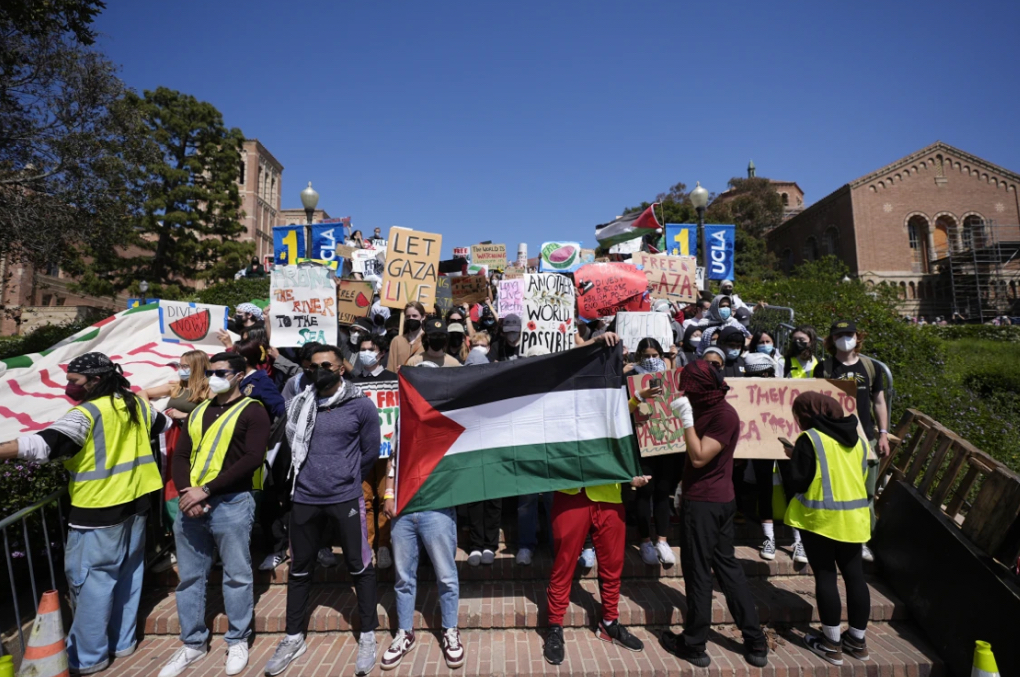
More than just college activism, the student protests are getting bigger. It shows how complicated the Israeli-Palestinian dispute is; it has been going on for decades, and there are no easy solutions. The protests raise concerns about human rights and moral issues surrounding university investments.
A call for nuanced language
An important and emotional struggle has come to the fore because of the rise in student protests in the US. Indeed, this shows how important it is to have a complex conversation that takes into account both the rights of Palestinians and the risks of antisemitism. On the way to a more fair future, universities can become very important places for encouraging open dialogue.
Image Source: Multiple Agencies
© Copyright 2024. All Rights Reserved Powered by Vygr Media.























